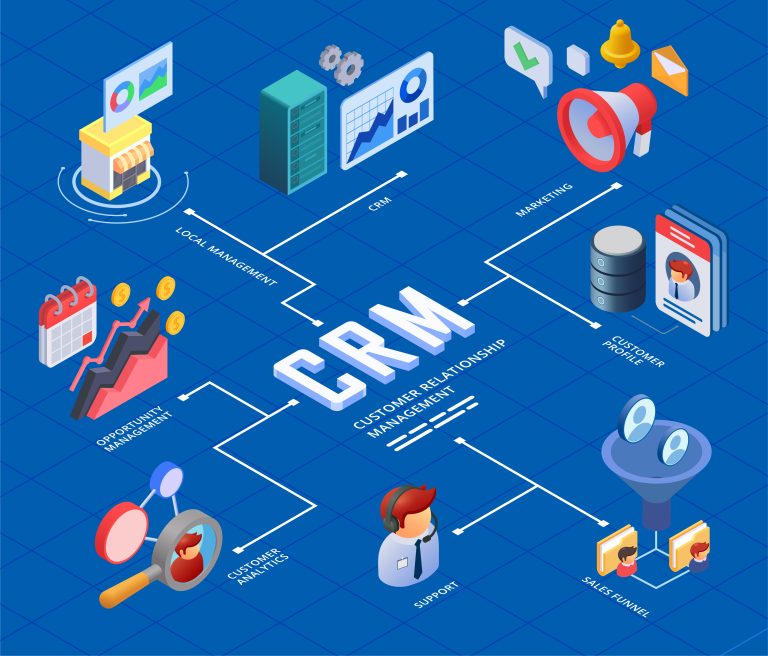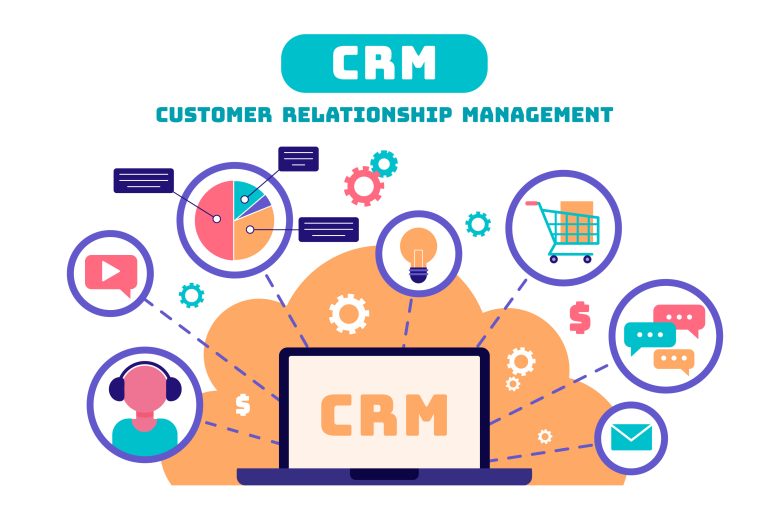Introduction
In the dynamic and hyper-competitive business environment, building and nurturing strong customer relationships has become the cornerstone of success for organizations across industries. Customer Relationship Management (CRM) has emerged as the driving force behind these efforts, empowering businesses to understand, engage, and delight their customers. In this blog, we will delve deeper into the world of CRM, exploring its evolution, key features, benefits, implementation best practices, and the impact it has on customer experience and overall business growth.
The Evolution of CRM
The concept of CRM can be traced back to the early 1980s when database marketing emerged as a way to collect customer information for targeted marketing efforts. Over time, CRM evolved from simple databases to sophisticated software systems that encompass a holistic approach to managing customer relationships. Today’s CRM solutions integrate cutting-edge technologies like AI, automation, and data analytics to deliver highly personalized and efficient customer experiences.
Key Features of Modern CRM
- Customer Data Centralization:
- A robust CRM system serves as a centralized repository of customer information, including contact details, communication history, purchase behavior, and preferences. This centralized database allows businesses to gain a comprehensive understanding of each customer, leading to more meaningful interactions.
- Personalization and Customization:
- Modern CRM systems leverage AI and data analytics to provide personalized experiences for customers. Businesses can deliver tailored recommendations, content, and offers based on individual preferences, driving higher engagement and conversion rates.
- Sales and Marketing Automation:
- CRM automates repetitive tasks such as lead scoring, email marketing, and follow-ups, enabling sales and marketing teams to focus on building relationships and strategic initiatives.
- Customer Service and Support:
- CRM streamlines customer service processes by creating a ticketing system, enabling issue tracking, and ensuring timely resolution of inquiries. This results in improved customer satisfaction and loyalty.
- Analytics and Insights:
- CRM analytics offer valuable insights into customer behavior, sales performance, and marketing effectiveness. Data-driven decision-making helps businesses refine strategies, identify opportunities, and optimize resource allocation.
Benefits of CRM
- Enhanced Customer Experience:
- CRM puts the customer at the center of every interaction, enabling businesses to deliver seamless and personalized experiences that meet customer expectations and needs.
- Improved Customer Retention:
- By understanding customer preferences and providing exceptional service, CRM enhances customer loyalty, reducing churn rates and increasing customer lifetime value.
- Increased Sales Efficiency:
- Automation and lead management functionalities in CRM boost sales team productivity, shorten sales cycles, and improve conversion rates.
- Targeted Marketing Campaigns:
- CRM’s ability to segment customers and analyze data allows businesses to run targeted and relevant marketing campaigns, resulting in higher response rates and improved ROI.
- Collaboration and Data Sharing:
- CRM promotes collaboration among teams, ensuring everyone has access to real-time customer data. This fosters a unified approach to customer management and a consistent brand experience.
Implementing CRM Successfully
- Clearly Define Objectives:
- Set specific and measurable goals for CRM implementation, aligning them with the overall business strategy. Defining objectives helps keep the implementation focused and on track.
- Involve Stakeholders:
- Engage stakeholders from different departments in the CRM implementation process. Their input and buy-in are crucial for successful adoption and utilization.
- Data Quality and Migration:
- Prioritize data accuracy and quality during the migration process. Cleanse and organize existing data to ensure a seamless transition to the new CRM system.
- Training and Change Management:
- Provide comprehensive training to employees to ensure they can effectively use the CRM platform. Implement change management strategies to ease the transition and minimize resistance to the new system.
- Continuous Monitoring and Improvement:
- Regularly assess CRM performance and gather feedback from users. Act on insights to continuously improve the system and align it with changing business needs.
The Impact of CRM on Customer Experience and Business Growth
CRM has a profound impact on customer experience, leading to increased satisfaction and loyalty. By understanding customers’ preferences and providing personalized interactions, businesses can build stronger relationships that go beyond transactional exchanges. Positive customer experiences result in word-of-mouth referrals and brand advocacy, attracting new customers and strengthening the organization’s reputation.
In terms of business growth, CRM plays a pivotal role in driving revenue and profitability. Efficient lead management and targeted marketing efforts lead to higher conversion rates and increased sales. Moreover, CRM analytics provide data-driven insights, enabling businesses to identify new opportunities, optimize processes, and allocate resources wisely. As a result, CRM empowers organizations to make informed decisions that foster sustainable growth and competitive advantage.
Conclusion
Customer Relationship Management (CRM) has emerged as an indispensable tool for businesses striving to build meaningful and lasting relationships with their customers. With its evolution into a sophisticated, data-driven, and personalized solution, CRM continues to transform the way organizations interact with their clientele. By centralizing customer data, automating processes, and providing valuable insights, CRM enables businesses to enhance customer experiences, drive growth, and stay ahead in the fiercely competitive market. Embracing CRM is not just an investment in software; it is a commitment to putting the customer at the heart of your business strategy and success.



